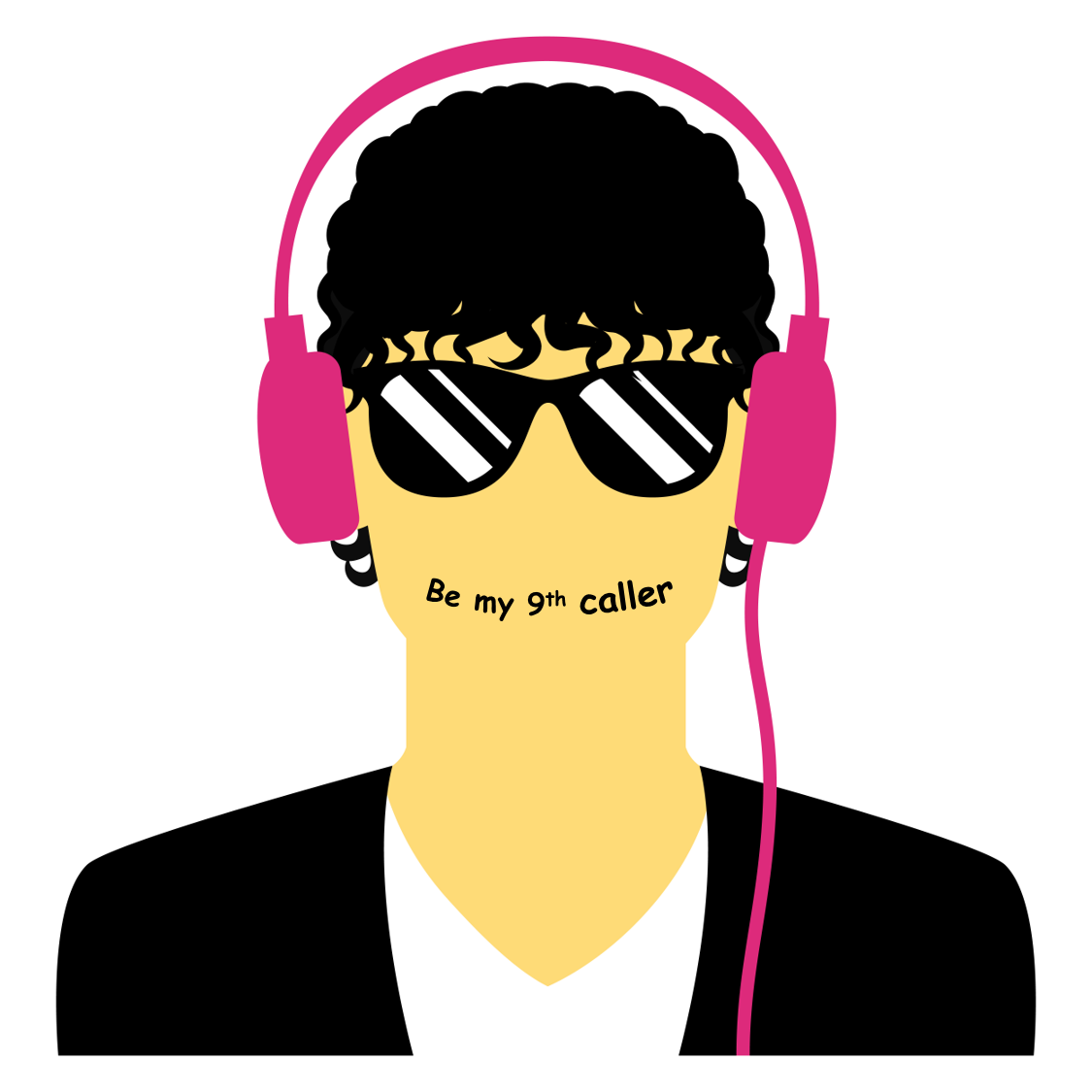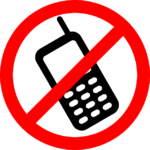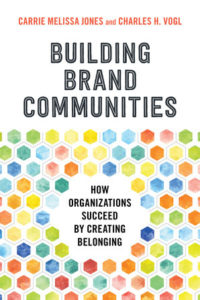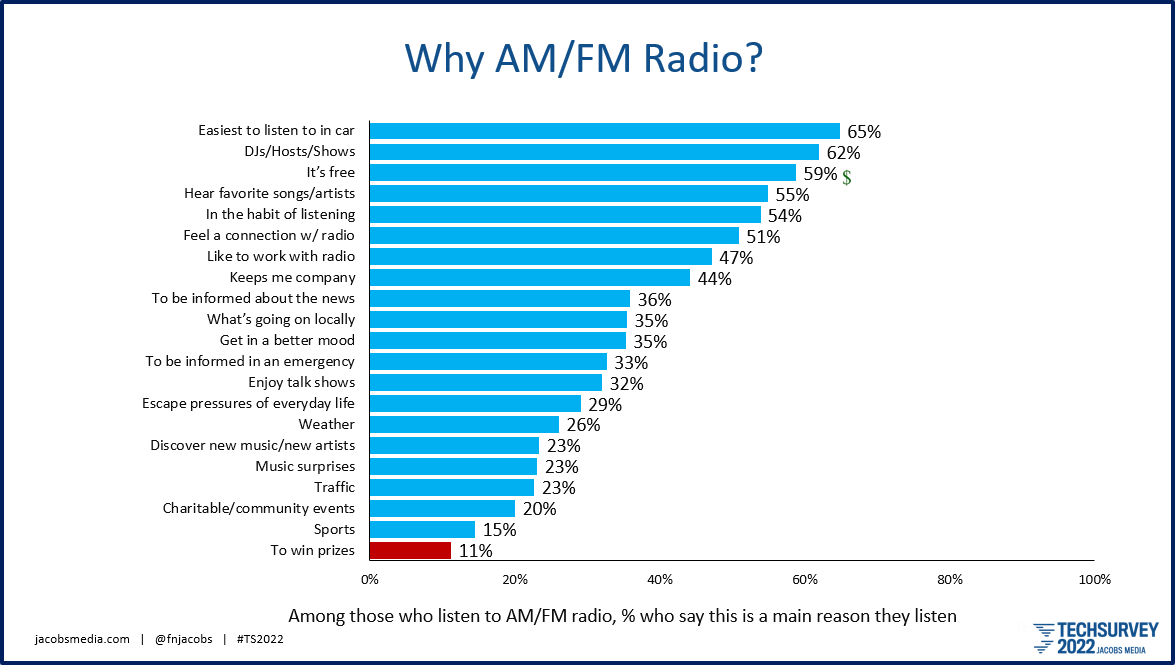
There are some traditions in commercial radio that are…well, traditions. We have always done them. And we still do them…largely because we’ve always done them. Do they work anymore, even if they did at one time? That’s up for debate. But if we stopped doing them, it would seriously hurt us. Wouldn’t it?
Right now, Public Radio stations are experiencing a similar moment of refection over their long tradition of fundraising using the tried-and-true pledge drive. Most listeners – even the ones who regularly give – despise these multi-day interruptive pleas to donate. But the conventional wisdom is that despite their inherent negatives – including consistently lower ratings – virtually everyone in the system raises money via the pledge drive format.
But in our post-pandemic reality, pledge drives don’t seem to be anywhere near as potent or effective as they once were. And we might be able to say the same things about contests on the commercial radio side of the aisle. Sure-fire ways to keep listeners tuned in and/or donating money seem to be losing their potency. It’s as if the audience is saying, “What else you got?”
That’s why I admire what Seth Resler has researched and written about contests – in essence the idea of perhaps building a better mousetrap for commercial radio. Or perhaps thinking about doing something very different that still gets the job done. Or even something even better that’s not as costly (in dollars or rating points), but actually is additive to a station’s brand. What motivates today’s audiences, and how can broadcast radio lean into that? That’s today’s quest, and I hope you like where Seth is headed. -FJ
Rethinking Contests: What Motivates Your Radio Station’s Most Passionate Listeners?
By Seth Resler
Few other mediums rely on contesting as heavily as radio. I have rarely if ever seen my local television station or newspaper try to attract an audience through contests. Newer forms of media seem to shun contests entirely. I certainly don’t know anybody who started posting to Facebook or Instagram or TikTok because they were bribed by these companies with a prize. Sure, there are companies that run contests on these social platforms, but that’s not the same as the platforms themselves hosting. And yet, the idea of abandoning contests entirely makes most radio program directors deeply uncomfortable.

When I was a Program Director of an alternative rock radio station, my world revolved around contests. Every week, I huddled with my programming staff to figure out what we would give away during the upcoming week (invariably, some variation of concert tickets) and how we would give that prize away. But I didn’t think of these contests as a way to bribe people to listen with prizes. Instead, I insisted that every contest have what I call the “Play-Along-At-Home Factor.” In other words, it had to be just as enjoyable for the audience members who are not playing the contest as it is for the contestants, in the same way that it’s fun to watch Wheel of Fortune even if you’re not the one buying vowels from Pat Sajak. I eschewed “Caller Number 9” contests because they didn’t provide any entertainment value for the average listener.
In my mind, the prize wasn’t the incentive for people to list; the entertainment value was the incentive.
External vs. Internal Motivations
Recently, I’ve spent a lot of time with the book Building Brand Communities by Carrie Melissa Jones and Charles Vogl. It has given me food for thought about what motivates people. The authors dedicate an entire chapter to “Motivation and Encouraging Participation.” While they discuss what motivates community members, not audience members (you can read about the difference between the two here), there is an important lesson for radio programmers.
 Jones and Vogl write:
Jones and Vogl write:
“The use of incentives, rewards, and acknowledgments to encourage participation is an area that unskilled leaders often get painfully wrong. Misunderstanding how members are motivated, and ‘rewarding’ them inappropriately, can destroy goodwill and a community.”
They continue:
“Inexperienced leaders often misunderstand how people are motivated toward community participation and contribution. As a result, they will ‘give away’ goodies (such as branded swag or gift cards) thinking that this will create participation, contribution, and loyalty from the recipients.”
The authors draw a distinction between external and internal motivations:
- “External motivation drives us to action in order to get a reward or avoid punishment.”
- “Internal motivation comes from inside us and feels like a natural part of ourselves. When we are internally motivated, no one else need to provide anything more to inspire us to action.” (emphasis theirs)
Radio listeners are, for the most part, internally motivated. We know this because every year, we ask them why they listen to AM/FM radio as part of our annual Techsurvey. Here’s are the reasons they gave for listening to the radio in Techsurvey 2022:

The majority of motivating factors for listening are internal: people like the ways it feels. While perhaps “it’s easiest to listen to in the car” and “it’s free” could be considered external motivating factors because they avoid punishment (work and cost, respectively), the only external reward — prizes — ranks dead last with only 11%. So why are we as radio programmers so obsessed with contesting?
Incentives vs. Tokens
Jones and Vogl point out that both external and internal motivations can be encouraged through rewards, but they require different types of rewards: incentives and tokens:
- “An incentive is intended to incite action. An incentive appeals to external motivation for someone to take action.”
- “A token is an item given to someone. It represents a relationship, a shared value, or both. A token specifically honors a recipient’s internal motivation.”
For example, if I need a ride to the airport, I must incentivize an Uber driver with money; they won’t take me unless I pay. On the other hand, if my friend drops me off at the gate, I will thank him by taking him to dinner. The dinner is not an incentive; it’s a token. My friend would’ve given me a lift without receiving dinner, but the sign of appreciation makes him more likely to be internally motivated to do so again in the future.

I asked Paige Nienaber, author of The Encyclopedia of Radio Promotions and the industry’s leading mind when it comes to creative promotions, what he made of this distinction between incentives and tokens. He said, “Pretty much every contest seems to be an incentive: if you listen at some ridiculous appointment time, like “2:08”, we’ll give you something as a reward.”
He’s right. Radio programmers traditionally think of contest prizes as incentives that appeal to the external motivations of listeners. But I know of at least one prize that is a token, not an incentive: Wait Wait…Don’t Tell Me!‘s infamous voicemail greeting.
Wait Wait is NPR’s syndicated weekly news quiz show. It features a segment called “Bluff the Listener,” in which a listener is read three news stories and must identify which one is fake. For years, the listeners’ reward for correctly choosing the fictitious story was a voicemail greeting recorded by announcer Carl Kasell, whose deep voice is instantly recognizable to any public radio fan. Kasell retired in 2014 and passed away in 2018, and today the winner receives a voicemail greeting recorded by their choice of the celebrity panelists.

I checked in with Doug Berman, the Benevolent Overlord of the show, to find out how they came up with this prize. He told me:
“It was cheap. We didn’t have money for prizes. And it reinforced the whole nature of the show. It was both worthless, and priceless. We were making fun of ourselves as a game show. And just the idea of it made a statement about how we didn’t take ourselves seriously, and that prizes are not what this show is about. Winning it, and even wanting it, made you part of our club.” (emphasis mine)
In other words, the voicemail greeting is a token that appeals to fan’s internal motivations.
I was curious if Wait Wait had ever considered offering a prize that appealed to listener’s external motivations, so I asked Doug if they ever thought about giving away something of monetary value. He replied:
“I’m sure we tossed around some ideas, but they all seemed so small compared to getting Carl Kasell’s voice on your voicemail. One of the key elements of the show is that Carl was a hero. He was a cool dude — a newsman of great stature, willing to risk his reputation to be associated with us and get some laughs. The prize said, ‘We’ll give you something at the very heart of our show if you play and win.’ A T-shirt seemed like a distant second to that.”
The Lesson for Radio Programmers
So many radio stations have budget restraints these days that coming up with big prizes can be difficult. But there’s a lesson in Wait Wait‘s voicemail greeting: “Big” prizes only need to have a high monetary value if they’re appealing to listeners’ external motivations. But if you appeal to their internal motivations, the prize can still be big even if the price tag isn’t.
I asked Paige if he knew of any other radio stations that gave listeners tokens instead of incentives. He said, “At-work marketing is primarily ‘token;’ we thank you for listening by bringing you food. WiLD in Tampa used to just take random callers and give them stuff as an ode to their fandom.” (If anyone on the WiLD staff needs a ride to the airport, let me know!)
So maybe contests can still play an important role for radio stations even if other mediums don’t use them; but perhaps they don’t play the role that we think they do. Maybe contests are a way to show our appreciation for our biggest fans. Find a token that makes your winners part of the club, and you’ll motivate them to keep listening far more than an expensive prize can.
- A Simple Digital Treat to Thank Your Radio Listeners This Thanksgiving - November 13, 2023
- Interview Questions When Hiring Your Radio Station’s Next Digital Marketing Manager - November 6, 2023
- A Radio Conversation with ChatGPT: Part 2 – Promotions - October 30, 2023




I’ve pretty much pulled the plug on 99% of the contests we’d ever consider… simply for the reasons you’ve outlined here – notably, “winning prizes” finishing dead last in the “Why Radio?” graphic, and overall – its a lot of work behind the scenes to execute, and a lot of clutter on the air and on line for such a small payoff. Since then, we’ve redesigned a new vinyl sticker with our station logo, and we’re offering that to anyone who wants one. They text “STICKER” to 68255, give an email address, etc., and we send them 2 – one for them and one for a friend. For our format, the sticker says a LOT to others about what our listener believes…
Matt,
It is a lot of work to execute! There’s something to be said for allocating your resources wisely.
I love the way you’re using stickers. It’s a smart way to reward superfans and capture their contact info at the same time!
I think reinforcing station/format imagery is another purpose for contesting. Something like x song marathons with a prize for catching a station one song short of their pledge is an external prize with all of its weaknesses, but it can also cement a station’s image as playing the most music in a market. Giving away something really cool (external again) can also help brand a station as the coolest frequency in town.
Your thoughts?
I’ll let Seth chime in. You know, Bob, I’ve long been a fan of contests like the one you mention that combines tactics AND strategy (“tactegic,” as Steve Goldstein called it. As the years roll on, and radio’s ability to hold an audience’s attention diminishes, I am less enthusiactic. Maybe I’m more jaded than most.
Thanks for reading, Bob!
Incentives that target external motivations certainly have a place, and if they are accomplishing whatever goal you have for them, I think they can work. The key is to make sure that your tactics align with the overall strategy.
I think Jones and Vogl would argue that if the goal is to build community, then you need tokens with targets internal motivation. But if the goal is to build audience (which is different), then incentives can work.
Fred describing himself as jaded…I consider that a personal victory
You clearly deserve some indirect credit, Bob. I appreciate your cynicism and your focus.
I had a contest one night to find “The World’s Fastest Talking DJ.”
2 brothers won by spouting
“91 WLCS We Love Chucker’s Show with blues-boppin,’ booty-shaking, country-cookin, slam-bang, lemme outa’ mah cage and go hog wild with NAAAKED rock ‘n’
BOOOGGGIIEE.”
In 5.2 seconds (the boogie was often another 4-6 seconds; didn’t count)
The prize? They came up and did a one-hour show themselves.
Chuck Kirr The Chucker WLCS, Baton Rouge, 1976
Now,owner WZPH, Zephyrhills as Dr. Dr. “Doc” Thayer/Impressive Hulk with 2 dj’s and the rest SJ’s.
What, you ask are SJ’s? Singing Jocks. Instead of TALKING over song intros, they SING the intro!
wzphfm.com
Love it, Doc!
Remember KTNQ (Ten-Q) in the late 1970s? They did pretty much the same thing as the Tampa station. Random callers to the request line were given varying amounts of “WAM” (Walking Around Money), usually around $50.
Listeners who suddenly found themselves a few bucks richer just because they were calling in a request were invariably incredibly excited when put on the air.
So this should have been resonating with us for almost a half-century already …
Yes, I suspect that many radio stations have examples of this in their history — in fact, they may even be some of their most memorable promotions!
This isn’t directly related, but still represents some good examples: Last Monday’s observance of World Radio Day reminded me why I’m glad to have started following Portugal’s main commercial groups.
Over at Grupo Renascença Multimédia, its three formats (Radio Renascença, RFM, and Mega Hits) held their annual live “All Stars Radio Show” during morning drive; this year, though, it looks like there was a studio audience that might’ve been selected via contesting. Also, the day’s remaining shows on RFM (through late night) apparently had listeners as guests/co-hosts–while Mega Hits had its evening show do a live remote at a local university.
Meanwhile, Radio Comercial (RFM’s direct competitor) had a day-long, traveling live remote in a converted bus; there might not have been any contesting that I could tell, but there definitely was some listener interaction (possibly helped by a sponsorship from a gas-station chain).
These are great examples! What a fantastic way to recognize listeners and make them feel like they’re part of the club!
The love of radio contesting started in 1960 when I won a “WBBF First Aid Kit”, a 50 cent item the station gave to thousands of listeners. I won a bottle of Canada Dry Ginger Ale once -for answering a trivia question. I reveled in Jack McCoy’s “Last Contest” when he offered up a 40 day African safari. We gained massive success with his follow up “Incredible Prize Catalog”. The “$25,000 Money Button” meant to get the station’s name out-and demoralize the competition. We should call them “Fun and Games” -not contests. I had the luxury of working with Paige for awhile- he’s the nuttiest, most creative person the world has ever known and people who don’t work with him are one of the reasons the industry is in the shape it’s in. I know the research shows “winning prizes” at the bottom, but has anyone researched the methodology? Nah. No need. If it’s fun the listener will love it. We could pick apart the user experience a thousand ways and it will probably boil down to one thing. Make it work for the listener. Thanks for bringing this up, y’all.
Yes, Paige’s creativity is inspiring! Thanks, Dave!
I feel awful for trashing Dave mercilessly to anyone who would listen for all these years
Personal bias disclaimer: I’ve won countless thousands of dollars in money and prizes from radio stations, so you know up front how I feel about them. That said, those 11 percent that listen for contests is nothing to sneeze at. Just make sure you’re doing contests in a way that the other 89 percent enjoy (or at least don’t mind) listening to, Who wouldn’t want an extra 11 percent audience? Do it right and the listener–AND the station–win!
Thanks, David!
To be clear, our research says that only 11% of listeners cite contests as a primary reason for listening to the radio; it doesn’t say that radio stations that host contests have 11% more listeners.
I agree 100%, it’s important to host contests that are enjoyable for the listeners who are not participating. You can use “incentive” or “token” prizes to do this.